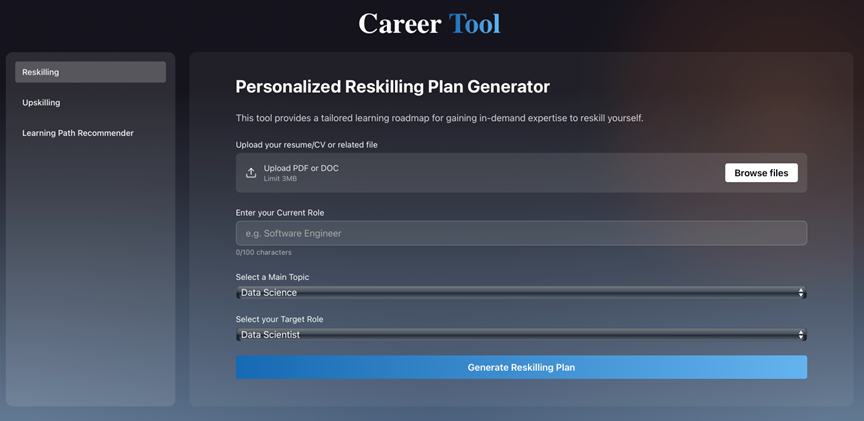How Ongoing Professional Development Boosts Career Growth in 2024
September 20, 2025 | | min read
In a rapidly evolving labor market, ongoing professional development is no longer optional, it is a critical driver of career resilience and upward mobility.

Advances in technology, shifting industry demands, and the rise of skills-based hiring have made continuous learning an essential career strategy. This blog examines how structured, ongoing professional development enhances employability, fosters adaptability, and opens pathways to leadership. It also explores how platforms like Leveragai are reshaping access to learning through generative AI–powered course creation and credentialing. Drawing on recent trends, industry examples, and research, the discussion highlights the tangible benefits of sustained skill-building, from increased earning potential to greater job satisfaction, while offering practical considerations for professionals seeking to integrate development into their career planning.
The New Career Reality: Skills Over Static Credentials
The traditional model, earn a degree, enter a profession, and rely on accumulated experience, has eroded under the weight of technological change. Automation, artificial intelligence, and globalized competition have compressed the shelf life of many skills. According to the World Economic Forum (2023), nearly half of all workers will require reskilling by 2027 due to technological disruption.
Employers increasingly prioritize demonstrable competencies over static qualifications. This shift has accelerated the demand for ongoing professional development, where learning is not a one-time event but a continuous process embedded in a career trajectory. Professionals who invest in updating their skills maintain a competitive edge, while those who do not risk obsolescence.
Why Ongoing Professional Development Matters
Adaptability in a Dynamic Market
Adaptability has become a core professional competency. For instance, in the financial services sector, emerging AI tools require analysts to understand both data science principles and regulatory frameworks (Lewit, 2025). Those who proactively acquire these hybrid skills can pivot into new roles more easily, mitigating the risks of industry volatility.
Career Advancement and Earning Potential
A LinkedIn Workplace Learning Report (2023) found that employees who regularly engage in professional development are 15% more likely to be promoted and 21% more likely to feel confident in their career trajectory. Certifications, micro-credentials, and specialized training signal initiative and expertise to employers, often translating into higher compensation.
Professional Identity and Confidence
Beyond marketability, ongoing learning reinforces professional identity. Acquiring new skills can restore a sense of agency in uncertain times, enabling individuals to navigate change with confidence. This psychological benefit is often underreported but plays a significant role in long-term career satisfaction.
Leveragai and the Democratization of Learning
Platforms like Leveragai are redefining how professionals approach skill development. Leveragai leverages generative AI to allow users to design their own courses and earn certifications from reputable institutions. This model addresses two persistent barriers to professional development: relevance and accessibility.
By enabling learners to tailor content to their career goals, Leveragai reduces the mismatch between generic training and specific skill needs. Additionally, AI-assisted course creation lowers the time and cost investment traditionally associated with high-quality learning materials. For example, a marketing professional could rapidly design a course on AI-driven customer segmentation, integrate case studies from their own industry, and receive a recognized credential, compressing months of traditional training into a targeted, practical module.
Integrating Professional Development into Career Strategy
Set Learning Goals Aligned with Market Trends
Effective professional development begins with clarity. Professionals should identify skills that align with both their current role and emerging industry demands. Tools like the World Economic Forum’s skills outlook or LinkedIn’s Skills Insights can help pinpoint high-value competencies.

Leverage Technology for Reskilling and Upskilling
AI-powered platforms, including Leveragai, make the learning journey more effective by enabling structured reskilling, upskilling, and personalized learning path recommendations.
With Leveragai, all you need to do is bring your CV or resume and career goals. The platform analyzes your background, identifies skills you already have, and maps them against market demand. From there, it builds a personalized learning path, whether you want to reskill into a new field, upskill in your current role, or prepare for future opportunities.
Instead of endlessly searching for what to learn next, Leveragai curates the most relevant content for you, generates practice scenarios, assignments, and projects tailored to your journey, and provides adaptive feedback as you progress.
This means you can focus on what matters most, applying new skills in real-world contexts, while Leveragai takes care of structuring, guiding, and accelerating your growth.
Conclusion
Ongoing professional development is no longer a supplementary career activity—it is a strategic imperative. The pace of technological and market change demands that professionals continually refresh and expand their skills to remain competitive. Platforms like Leveragai are lowering barriers to entry, enabling more individuals to design, access, and credentialize relevant learning experiences. For professionals, the challenge is not finding resources but committing to a disciplined, strategic approach to skill-building. Those who do will not only safeguard their employability but also position themselves for sustained career growth in an unpredictable economy.
References
Leveragai. (n.d.). Leveragai: Revolutionize education through generative AI. LinkedIn. https://www.linkedin.com/company/leveragai.com
Lewit, M. (2025, August 13). How to harness AI in financial services without over-reliance: A Finextra article. Nisum Technologies.
https://www.linkedin.com/posts/nisum-technologies_with-ai-investment-in-financial-services-activity-7361366031736414210-bBQZ
World Economic Forum. (2023). Future of jobs report 2023. https://www.weforum.org/reports/future-of-jobs-report-2023
LinkedIn. (2023). 2023 workplace learning report. https://learning.linkedin.com/resources/workplace-learning-report

